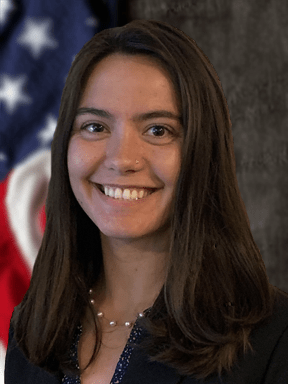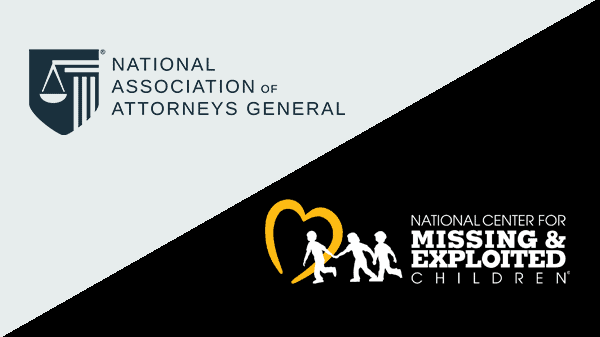Introduction
There is significant confusion among attorneys and judges regarding whether closed-ended questions (questions that ask respondents to choose from a distinct set of pre-defined responses) are inherently leading. Most jurisdictions hold that closed-ended questions are not inherently leading, but in some jurisdictions the caselaw is either unsettled or unclear regarding this issue. Contributing to the confusion is the fact that the Federal Rules of Evidence, the U.S. Supreme Court, and Federal Appellate courts have not directly addressed this issue.1 Additionally, trial court judges have a great deal of discretion in determining what qualifies as a leading question within their courtroom, and appellate court judges are unlikely to reverse a case on the grounds that improper leading questions were allowed during direct examination.2
This lack of clarity makes it especially important for practitioners to understand the issue well enough to address it in the moment, at the trial court level, in order to receive their desired result. To assist practitioners in navigating closed ended questions, this article will address the general evidentiary rule related to leading questions, the necessary definitions, the treatises and cases most commonly used to answer this question, and reasons for the lingering confusion surrounding this issue.
Definitions in Treatises and Caselaw
A “closed ended question” may be defined as a question that provides “set responses.”3 The most common type of closed-ended question is a question that can be answered with a simple “yes” or “no.”4 Courts also refer to this as a question that can be answered with an affirmative or negative answer.5
But what is a “leading” question? Rule 611(c) of the Federal Rules of Evidence addresses leading questions, and it is also the basis for state rules regarding the use of leading questions.6 Rule 611(c) provides that leading questions are generally not allowed on direct examination, except to develop a witness’s testimony.7 However, this rule and its corresponding notes do not define leading questions or address whether closed-ended questions are inherently leading.8
Since Rule 611(c) does not provide a definition of a leading question, courts in most jurisdictions9 use the definition from Black’s Law Dictionary.10 Black’s defines a leading question as “[a] question that suggests the answer to the person being interrogated; esp., a question that may be answered by a mere ‘yes’ or ‘no.’”8 This definition does not explicitly state whether closed-ended questions are inherently leading or not.
Courts may also cite the various editions of McCormick’s and Wigmore’s treatises on evidence to answer whether a closed-ended question is inherently leading.11 These treatises are cited in the corresponding notes for Rule 611 in the Federal Rules of Evidence to help elaborate on other items related to this rule.12 Both treatises state that closed-ended questions are not inherently leading and that whether or not the questioner suggests a correct or preferred answer is the determinant of a leading question.13 However, both treatises also state that closed-ended questions can frequently result in leading questions because of wording or emphasis.14
In addition to these two treatises, two cases that are frequently cited on this issue are People v. Williams15 and Florida Motor Lines Corp. v. Berry.16 Williams is a California case that states, “[a] question calling for a ‘yes’ or ‘no’ answer is a leading question only if, under the circumstances, it is obvious that the examiner is suggesting that the witness answer the question one way only, whether it be ‘yes’ or ‘no.’”17 The rule from Williams has been cited by state courts in Montana, Utah, Wisconsin, and Nevada.18 It has also been cited in district court cases from the Ninth Circuit and by the territorial courts in Guam.19 Similarly, Florida Motor Lines Corp. states, “a leading question is one that points out the desired answer and not one that calls for a simple affirmative or negative answer.”20 This rule has been repeatedly cited in state court cases in Florida, as well as state court cases in Arizona and in district court cases in the Eleventh Circuit.21
Although many jurisdictions use the relatively straightforward definitions described above, some courts have repeatedly changed their views about whether closed-ended questions are inherently leading.22 For example, some Iowa opinions state that closed-ended questions are inherently leading; some hold that closed-ended questions are not inherently leading; and others hold a closed-ended question is inherently leading if it would be “conclusive upon the matter in issue, or any material part of the issue.”23 These cases and other cases citing these opinions span from the 1800s to the present.
Another source of confusion is the slightly different ways some courts answer the question.24 For example, in Indiana there are several cases stating that a question which “embodies a material fact and admits of a conclusive answer in the form of” a closed-ended question is inherently leading.25 Although this rule is not completely at odds with the general view, it does find a form of closed-ended questions inherently leading. The Pennsylvania Supreme Court noted in 1918 that the material fact rule, stated above in relation to Indiana, was the common law rule but that “this rule has been somewhat departed from by a number of decisions which hold, that such a categorical question is not necessarily leading, provided of course that it is not so framed as to give an indication as to which answer is desired.”26
Using Closed Ended Questions in the Courtroom
Trial attorneys should know what qualifies as a leading question in the relevant jurisdiction and be prepared to respond when the issue is presented. Practitioners should prepare by researching the jurisdiction’s caselaw (if any) addressing the issue and include the research in the trial binders. Additionally, practitioners should prepare their trial binders to include the treatises and caselaw cited above; even if the treatises and cases are not precedential in their jurisdiction, they are the most commonly relied upon sources by courts across the country. By making sure they are prepared and having the applicable law at their fingertips, practitioners should be able to confidently make and meet objections relating to the intersection of closed-ended questions and leading questions.
- See Fed. R. Evid. 611(c). [↩]
- United States v. Ranney, 719 F.2d 1183, 1190 (1st Cir. 1983); Gell v. Town of Aulander, 252 F.R.D. 297, 306–07 (E.D.N.C. 2008). [↩]
- Native Am. Arts, Inc. v. Bud K World Wide, Inc., No. 7:10-CV-124 (HL), 2012 U.S. Dist. LEXIS 69715 at *20 (M.D. Ga. May 18, 2012). [↩]
- People v. Williams, 941 P.2d 752, 774 (Cal. 1997). [↩]
- Fla. Motor Lines Corp. v. Barry, 27 So. 2d 753, 756 (Fla. 1946). [↩]
- Fed. R. Evid. 611; Charles J. Walsh & Gwen L. Posner, Article: Presenting and Challenging Witnesses Under New Jersey Rules of Evidence 607, 611(c), and 803(a)(1): Should we vouch for the credibility of these rules? 27 Seton Hall L. Rev. 399, 445 (1997). [↩]
- Fed. R. Evid. 611(c). [↩]
- Id. [↩][↩]
- Steele v. State, No. A-12832, 2020 Alaska App. LEXIS 121 at *2 (Dec. 30, 2020). [↩]
- Leading Question, Black’s Law Dictionary (11th ed. 2019). [↩]
- McCormick on Evidence §6 (Kenneth S. Brown, George E. Dix, Edward Imwinkelried, D.H. Kaye, Robert P. Mosteller, E.F. Roberts & Eleanor Swift eds., 7th ed. 2014); 3 John Henry Wigmore, Evidence in Trials at Common Law §772 (James H. Chadbourn ed., 1970). [↩]
- Notes of Advisory Committee on Rules, Fed. R. Evid. 611. [↩]
- McCormick on Evidence, supra note 12; Wigmore, supra note 12. [↩]
- Id. [↩]
- Williams, 941 P.2d at 774; [↩]
- Fla. Motor Lines Corp., 27 So. 2d at 756. [↩]
- Williams, 941 P.2d at 774. [↩]
- State v. Lindberg, 196 P.3d 1252, 1263 (Mont. 2008); State v. Morgan, 2017 Wisc. App. LEXIS 970, *42 (Dec. 5, 2017) (citing People v. Pearson, 297 P.3d 793, 825 citing Williams, 941 P.2d at 774); Salcido v. State, 2014 Nev. Unpub. LEXIS 1099, *7 (July 22, 2014) (citing Pearson, 297 P.3d at 825 citing Williams, 941 P.2d at 774); State v. Isom, 354 P.3d 791, 805 (Utah 2015) (citing Pearson, 297 P.3d at 825 citing Williams, 941 P.2d at 774). [↩]
- Winston v. Fox, No. ED CV 16-80-FMO (PLA), 2018 U.S. Dist. LEXIS 140103, *32 (C.D. Cal. Mar. 21, 2018) (citing Pearson, 297 P.3d at 825 citing Williams, 941 P.2d at 774); People v. Perez, 2015 Guam LEXIS 9, *26 (April 9, 2015). [↩]
- Fla. Motor Lines Corp., 27 So. 2d at 756. [↩]
- Happ v. State, 922 So. 2d 182, 192 (Fla. 2005); State v. Simoneau, 401 P.2d 404, 407 (Ariz. 1965); Santiago v. Jones, No. 14-CV-24301-LENARD, 2015 U.S. Dist. LEXIS 182368, *37 (S.D. Fla. Dec. 11, 2015). [↩]
- See State v. Wickliff, 64 N.W. 282, 284 (Iowa 1895). [↩]
- See State v. Horn, 282 N.W.2d 717, 727 (Iowa 1979); Wickliff, 64 N.W. at 284; Pelamourges v. Clark, 9 Iowa 1, 18 (Iowa 1859). [↩]
- Bonadies v. Sisk, 691 N.E.2d 1279, 1280 n.1 (Ind. Ct. App. 1998). [↩]
- Goodman v. State, 479 N.E.2d 513, 515 (Ind. 1985); Bonadies, 691 N.E.2d at 1280 n.1. [↩]
- Waltosh v. Penna. R.R. Co., 259 Pa. 372, 377–78 (Penn. 1918). [↩]





